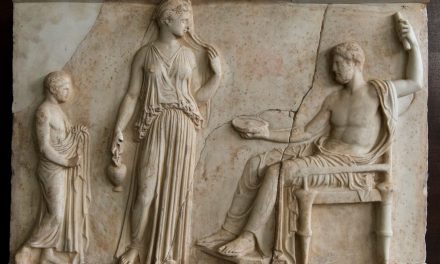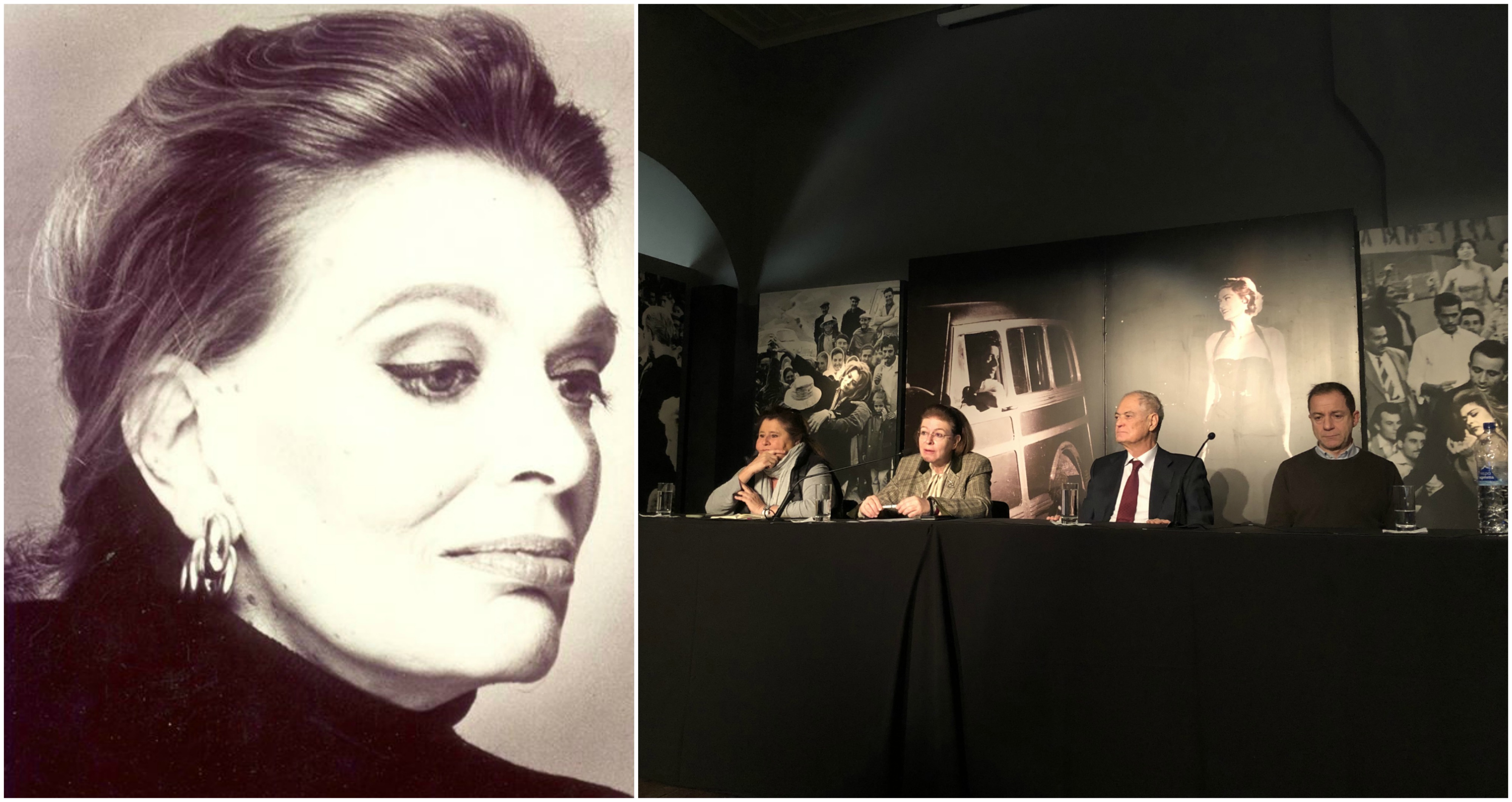The oldest University of Greece, the National and Kapodistrian University of Athens (NKUA), turns 180 in 2017. To mark this anniversary, a series of events have been programmed. The International Conference on “Hellene, Greek, Romios: Collective Identifications and Identities”, that took place in Athens from 19 to 21 January 2017 was the main celebratory event of that month.
Greek News Agenda, guided by Vangelis Karamanolakis, Assistant Professor of Modern Greek History in the Faculty of History and Archaeology of the School of Philosophy in the NKUA and President of the Historical Archives of the University’s Board of Directors, plunges into the depths of its history. Vangelis Karamanolakis, co author with Kostas Gavroglou and Chaido Barkoula of “The University of Athens and its history (1837-1937)” is also a Member of the Committee for the Celebration of the 180 Years since the Establishment of the NKUA.
Karamanolakis talks to Greek News Agenda* about the milestones in the History of NKUA, which formed its present academic profile, bringing to light the main changes it has undergone in its status and philosophy. Through all changes though, politics were always part of the University’s DNA and both Professors and Students took part in political evolutions in Greece. This is evident from the fact that the University used to have its own Militia called Phalanx and elect its own Member of the Parliament. At the same time the University had an active role as part of the Greek society and its acts of Solidarity were evident from the early times, as was the case with the University Clinic which offered medical services to those in need. The social role of the NKUA and its acts of Solidarity is one of the main notions the Committee for the Celebration of the 180th Anniversary wants to focus on, Karamanolakis goes on to explain as regards to the rationale of the Celebratory events. Last, but not least Karamanolakis talks about the first event for the celebration of the 180th Anniversary and the International Conference on “Hellene, Greek, Romios”: Collective Identifications and Identities”.
What was the first Governor of the Hellenic Republic Kapodistrias’ role as far as the orientation of the University was concerned?
This one of the funny contradictions in the University’s history, which was named after Kapodistrias, although establishing a university, was not a priority for Kapodistrias. He governed a country ruined by war and other economic and natural disasters and what he thought was necessary for this country was the establishment of a series of technical education institutions so that citizens would be able to handle the new realities. That is why he founded a great number of such technical institutions (agricultural, ecclesiastic, military etc). As his term was cut short, we cannot guess what his future education policies would have been. The idea for a University had been there since the years of the Revolution, because it was considered a step towards the country’s Europeanization. During the Regency period (the period from 1832, when Otto, a Bavarian prince, became the first modern King of Greece in 1832. He reigned until he was deposed in 1862. His government was initially run by a three-man regency council made up of Bavarian court officials. In 1835 Otto removed the regents). The Bavarians, who came from a bureaucratic tradition, proceeded rapidly with the establishment of a state University which they deemed essential, so as to man the administration of the state. In 1834, the Bavarians established a law for Primary School Education and in 1836 a law for Secondary School Education. Shortly afterwards, in 1837, they established the Othonian University. It was officially inaugurated In May 4, 1837, consisting of the Schools of Theology, Medicine, Law and Philosophy, which at that time included Physics and Mathematical Sciences.
What was the impact of politics on the University?
Politics were part of the University’s DNA. In post revolutionary Greece, there were three political parties: the English, the Russian and the French. It is worth mentioning that the University was the first and only institution that was represented by a Member of Parliament from 1843 to 1862, elected by University professors. This was a unique phenomenon, coming from the West, and there were always huge political conflicts regarding the election of this MP. Politics were always present in student movements, even where there seemed to be a dispute between a student and a member of the faculty.
Which are the milestones in the History of NKUA?
In 1862, after King Otto was deposed, the University was renamed National University, signifying the change in the way it was perceived. During that same period, students and professors formed the historic University Phalanx, an army for the protection of the city and democracy. It is worth mentioning here that the term ‘Metapolitefsi’ (meaning ‘political changeover’, chiefly used to describe the transition from the junta regime during 1967-1974 to Democracy) has its roots in the transition following the deposition of King Otto. The young people of that era were called the Golden Youth and took an active part in political developments. When George I ascended to the throne, the Phalanx was asked to drop its mission, and it did; the students however insisted that it should resume its activities. The phalanx was linked to what we call irredentism. During the second half of the 19th century to the beginning of the 20th, when nationalism nurtured by the ‘Great Idea’ had reached its peak, the University phalanx served as a vision for the students wishing to take up arms to serve their country.
1882 was also a milestone year as the election of members of the Faculty by their peers was established. Members of the Faculty until then were appointed by the government, whereas after 1882 professors were able to choose their successors. This was a significant breakthrough for the Greek history of science as it had a direct effect onthe formation of the scientific field, which ceased being defined by politics.
In 1901 and 1903 respectively, the events known as “Evangeliaka” and Oresteiaka took place. These refer to mass student protests on the language dispute. Students supported the use of Katharevousa, a scholarly form of the Greek language resembling Ancient Greek as opposed to “Demotiki”, spoken Greek, which was supported by the modernists. This highly controversial issue reflected the ideological divide between conservatives and modernists. As you can see, the student movement hasn’t always been progressive.
In 1910, the first great purging operations took place in the University, on the basis of political criteria. In 1911, the University was divided into National and Kapodistrian. There is a funny story behind that: following the murder of Kapodistrias, Ioannis Dobolis, a rich expatriate in Russia and follower of Kapodistrias, bequeathed in 1860 a large sum of money provided that a second University would be established in Greece called Kapodistrianin 50 years time. This set in motion talks regarding the establishment of a new University. A decision was reached on economic grounds to divide the University into one that was called National and one called Kapodistrian, so that the second one would be able to inherit the money. But history had other plans: the money was lost on account of the Bolshevik revolution in 1917, and in 1922 the University was rejoined as National and Kapodistrian.
In 1911, an important reform took place involving the establishment of Doctoral studies which up to that point were not available in Greece. This meant that, until then, only those who could afford studies abroad could aspire to an academic career with the University, which inevitablyexcluded people without means. Another important development in that same year was that students were enabled, under certain conditions, to form student unions. It is worth noting here that up to 1926 the sole prerequisite for University studies was a High School Certificate. No entrance exams were necessary. In 1926, entrance examinations were established under the supervision of the University, and in 1929 the Ministry of Education set limits to the overall numbers of students admitted.
In 1926, Aristotle University was founded in Thessaloniki, which meant NKUA was no longer the only University in Greece. In the same period, followers of Eleftherios Venizelos established a number of schools around Greece (agronomics etc) which changed the field of higher education.Thus the next milestones, i.e. the educational reforms of 1932 and 1982 did not affect the National and Kapodistrian University alone.
The Education Reform brought about by Education Minister Georgios Papandreou in 1932 was in effect until 1982. It was a reform that tried to rationalize the way the University operated.
With the end of the junta regime in 1974, students found themselves in a powerful position following their mass participation in protests against the dictatorship. Nevertheless, they had no representatives in the University administration. There was also another large but silent category known as auxiliary academic staff. Professors had absolute authority. The Education Reform of 1982 overturned professorial power, established faculties and introduced students and assisting personnel into the administration of the University.
After 1982, a large number of changes have taken place. As a result of post war prosperity in the 60’s, more and more citizens had the ability to study and there was a definite rise in the number of Universities and students around Greece. Today, Aristotle University outnumbers NKUA, because it includes the Polytechnic School as well.
Having completed this retrospective, what are the philosophy and message of the celebratory events for the 180th Anniversary of NKUA?
The events are organized on a monthly basis. There is a thematic unity for each month, followed by an event. Regarding the rationale of the celebration, I have to say that every Anniversary is determined by how the present intends to interpret the past. There are some permanent aspects regarding the celebration, i.e. the history of the University, the way it has arranged its disciplines, its relations with other academic institutions etc. The aim of this Anniversary is to highlight the University’s ties with society and its social role, evident since the 19th century: the University clinic (Astikliniki) that operated in the 19th century offered medical services to thousands of people in need every year. Nowadays there are other activities connected with the university efforts for social solidarity, such as the University Refugee Watch.
Another social side of the University that these celebrations focus on is its role in the life of the city of Athens, and by that I mean that districts such as Exarcheia and Neapoli were built as student areas, while several historical buildings in the city center were linked to the University. We are also interested in highlighting student artistic creation and scientific endeavours, as well as talk about the future prospects of the University in times of crisis.
What is the impact of the current economic situation?
It has a big impact indeed. As far as the celebration costs are concerned, we are trying to limit them to the minimum. We are trying to find sponsors with the transparent procedures that the University and its public role require, as well as to organize events that make use of University resources without material cost. It is worth noting that all these celebrations do not intend to conceal University realities i.e. the difficulties deriving from limited resources. They rather act as a call for a dialogue on these issues. To sum up, I would say that the 2017 Celebratory events will serve as a self reflection on the University’s social role in the current economic context.
What was the reason d’ etre of the central celebrational event for January 2017, the International Conference on “Hellene, Greek, Romios”: Collective Identifications and Identities?”
It was quite natural to start with history. This Conference was proposed by the History and Archaeology Department and we believe that the establishment of a National University is consistent with the subject of this conference as far as the process of forming a national identity is concerned. At the same time, most of the debate regarding the meaning of these terms has taken place in the University during in 19th Century and we think that is the par excellence Institution that is linked to this discourse. We also think that the time has come to rethink with sobriety the terms that constitute our national identity, keeping in mind the new economic circumstances that redefine this identity.
* interview by Florentia Kiortsi














